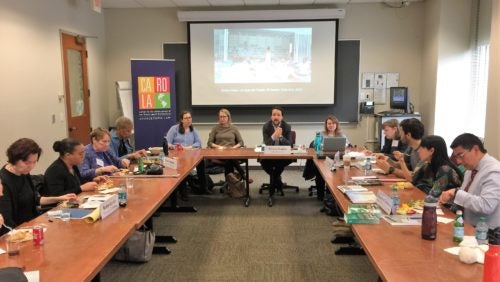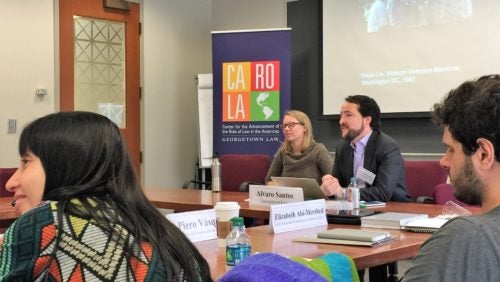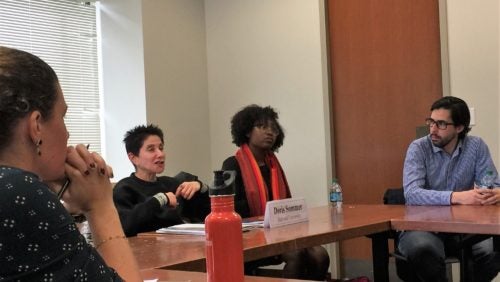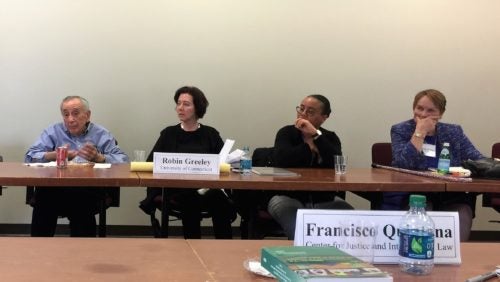Symbolic Reparations Roundtable
On March 28, 2018, CAROLA convened humanities and legal scholars, as well as practitioners and experts in the areas of human rights and reparations. Bringing the arts to bear in legal processes and remedies, participants discussed the state of symbolic reparations in the Americas and how they imagine ways to make them more effective.
Symbolic reparations, such as monuments and apologies, are recognized today as an integral part of state-sponsored reparations programs. As complement to material reparations, they can be beneficial and help redress harm from gross and systematic human rights violations. Often, symbolic reparations take the form of physical monuments and other public forms of remembrance, such as the naming of a holiday or a public space. Roundtable participants were asked to discuss the lessons that could be drawn from the experience thus far. What has the effect of this type of symbolic reparations been in societies that have implemented them? Furthermore, there are new proposals to shift the focus of symbolic reparations from material objects to creative processes, including community participation and educational programs that could induce reckoning with traumatic experience and target behavioral change. What has the experience with these processes shown? What does the design of these processes entail? How do they differently address the harm inflicted on victims and survivors?
The event consisted of two parts. The first part, from 10:30am to 12pm, entailed a private conversation between participants, informed by initial remarks by members of the Inter-American Commission of Human Rights (IACHR). The second part consisted of a lunch with students and the academic community in which discussants presented the main themes and conclusions of the private conversation.
Rountable Participants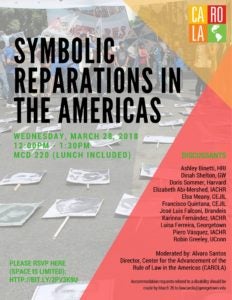
Doris Sommer | Harvard University
The role of the arts and creative processes as symbolic reparations
Elizabeth Abi-Mershed | Inter-American Commission on Human Rights
Process and actors in the adoption of reparations within the Inter-American system
Karinna Fernández | Inter-American Commission on Human Rights
The experience with transitional justice and reparations in Latin America
Open floor discussion:
Ashley Binetti | Human Rights Institute – Georgetown Law
José Luis Falconi | Brandeis University
Luisa Ferreira | Georgetown Law
Robin Greeley | University of Connecticut
Elsa Meany | Center for Justice and International Law
Francisco Quintana | Center for Justice and International Law
Dinah Shelton | George Washington Law
Piero Vásquez | Inter-American Commission on Human Rights
Moderated by:
Alvaro Santos | Georgetown Law

